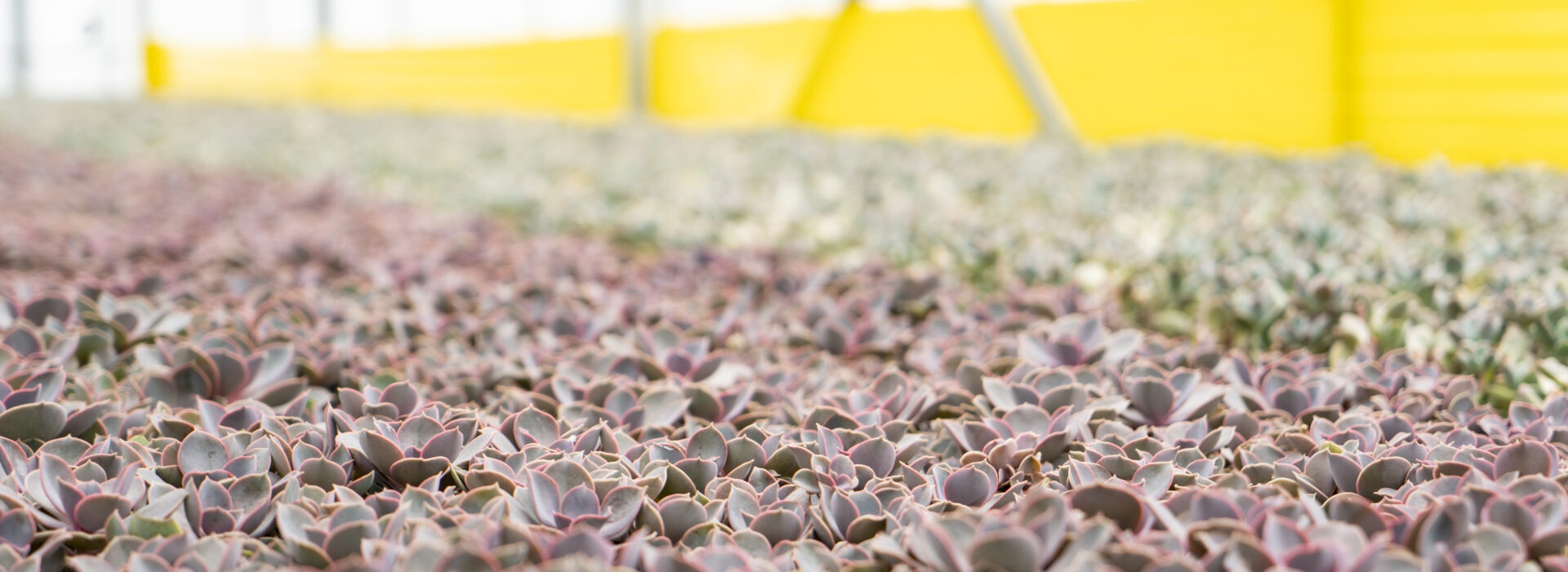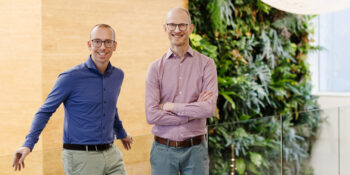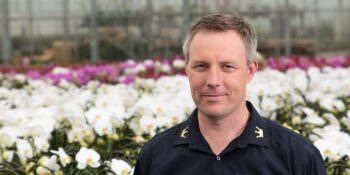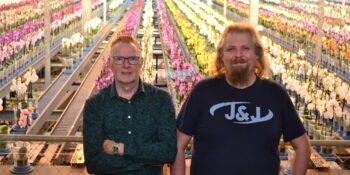Belgicactus grows with minimal use of crop protection agents and is committed to the use of biostimulants. But when crop protection agents are used, the company aims to use MPS-MIND certified green substances – i.e. those with the least harmful effects on the environment – wherever possible. “Over the last ten years we have seen a substantial drop in the total quantity of crop protection agents used, as well as a decrease in the use of amber and red substances,” says Jef Gielis, co-owner of Belgicactus along with his brother Jan.
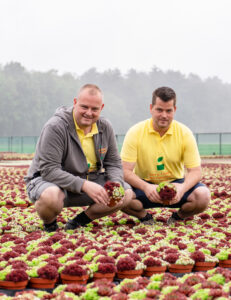
Jan en Jef Gielis, owners Belgicactus
Belgicactus was set up as a cactus and succulents nursery in the 1980s. They now specialise exclusively in succulents, given that these can be grown much more sustainably than cacti. Succulents can be produced in lower temperatures, with lower energy use and with fewer crop protection agents. To begin with they only grew indoor succulents, going on to add outdoor ones in the late 1990s. Today the split between indoor and outdoor succulents is roughly 50:50. Besides growing around 150 varieties of succulents in pot sizes ranging from 5.5 to 23 cm, Belgicactus also breeds and produces its own Sempervivum varieties, which are sold under the name Colorockz. “A few years ago, we launched the Fabulous Fat Friends brand to market our product range. This attracted quite a lot of attention, including from customers in our local area who didn’t know what our company was about,” Gielis says.
From low-peat to peat-free
At present, fertiliser usage at Belgicactus consists of over 90% organic fertilisers. Their outdoor succulents are grown almost entirely organically, although they have not yet achieved this with their indoor range. The succulents are raised slowly in cold temperatures to minimise energy usage. This cultivation method results in calm growth, which ensures strong, resilient plants for the customers. Belgicactus uses low-peat substrate that consists of 30% peat and 70% peat substitutes. The company has also tried growing in peat-free substrate but found that this substantially increased their use of fertilisers, so they decided to continue to use a proportion of peat in their substrate. However, they are keeping a constant eye on developments in peat-free substrates and will consider switching back if a solution is found for the issue of higher fertiliser use.
Insights and data from MPS-ABC
The nursery, which is currently preparing for its MPS-GAP audit, is monitoring usage in its own system developed in-house, based on insights and data from MPS-ABC. Gielis: “We continuously monitor how much product and what types of products we use. We have also experimented a lot with products like biostimulants and the use of low-peat substrate. With MPS-ABC we can analyse the use of crop protection agents, fertilisers and water in these trials.
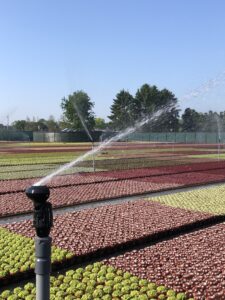 Foregone conclusion
Foregone conclusion
“It is not only the systems or our operational management that help us on our sustainability journey: our people are also very much involved,” Gielis says. The company employs local people, mainly on permanent contracts. “Our ten or so employees bear shared responsibility for the company, and we are pleased about that.” Doing business sustainably and obtaining sustainability certification have always been a foregone conclusion at Belgicactus, which was one of the first Belgian growers to join MPS. “Sustainability mainly stems from your own motivation. Sustainable innovation is a slow process: not everything can happen at once. Adaptations sometimes result in major changes that will not be seen immediately, or indeed even in the first year. But if you persevere, the rewards are all the greater,” Gielis concludes.
